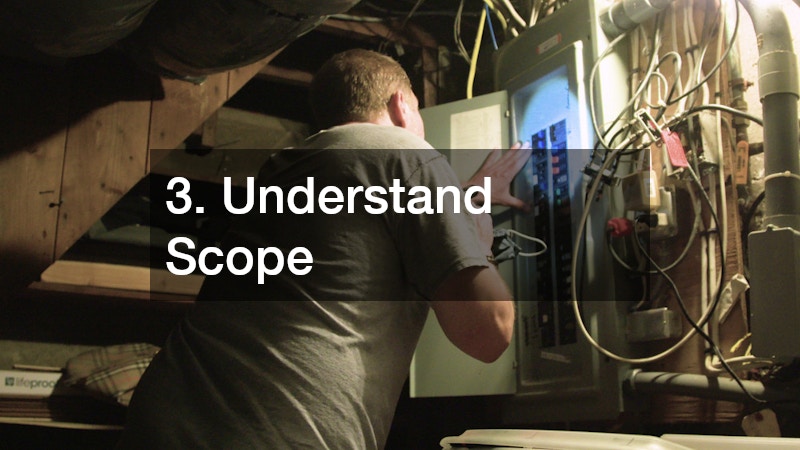Home renovations can breathe new life into tired spaces, improve functionality and boost your property’s value—but they must be done right. One of the most critical components of any renovation project is the electrical work. Whether you’re adding a new kitchen, remodelling a bathroom or extending your home, having a qualified expert manage your wiring and power systems is essential. This is where understanding the key facts about an electrician and their role in renovations becomes invaluable.
In this article, we explore three essential areas where electricians play a crucial role in home upgrades. First, we’ll cover how they prioritise safety, ensuring your home complies with strict Australian electrical standards and avoiding risks like electrical fires or failed inspections. Next, we’ll discuss how a professional electrical contractor helps coordinate with other trades to keep your renovation running smoothly and on schedule. Finally, we’ll unpack what’s involved in understanding the full scope of their work, because rewiring isn’t just about plugging things in.
By the end of this article, you’ll have a clear understanding of the essential facts regarding an electrician’s contribution to your renovation project and why engaging a licensed professional is an investment in your home’s future.
1. Prioritise Safety

Renovating a home isn’t just about visual appeal—it’s about creating a space that’s functional, durable and, above all, safe. One of the most important responsibilities in any renovation is ensuring electrical safety. Electrical faults are among the leading causes of house fires across Australia, and they’re often the result of poor DIY work or outdated systems. Electricians are trained to handle these risks, ensuring every connection, switchboard and socket meets current safety standards. They also stay up to date with Australian regulations, which are routinely updated to improve safety outcomes for households.
In practical terms, this means electricians conduct thorough checks before and after installation, use approved materials and ensure circuits are protected with devices like RCDs (residual current devices). They know how to identify hidden hazards—like degraded cabling behind walls—and they can safely decommission old wiring before installing new systems. This attention to detail prevents costly issues down the line and offers peace of mind. When hiring for your next project, keep in mind that one of the most vital facts about an electrician is that their primary job isn’t just powering your home—it’s protecting it from harm.
2. Coordinate Trades

Home renovations are rarely a one-trade job. Electricians must work closely with other professionals, including builders, plumbers, plasterers and interior designers. A skilled electrical contractor understands how to coordinate with these other trades to ensure everything fits together efficiently and safely. Without proper communication between trades, delays can mount, and costly rework may be required. For example, wiring must often be laid before walls are closed up, or lighting plans may need to align with cabinetry or plumbing.
An experienced electrical contractor will interpret building plans, attend on-site meetings and sequence their work in line with the broader renovation timeline. They understand when to step in—whether it’s pre-wiring a new space or finalising connections after other trades have completed their work. This collaborative approach minimises disruptions, keeps your renovation on schedule and ensures compliance at every stage. Among the key facts regarding an electrician, their ability to integrate their work with others is often underestimated, but it’s one of the qualities that separates a seamless project from a frustrating one.
3. Understand Scope

Many homeowners underestimate how complex electrical work can be in a renovation. It’s not just a matter of replacing old wires or installing new light fixtures. A qualified electrician will take the time to understand the entire scope of your project, factoring in current loads, future capacity, smart home upgrades and energy efficiency. They’ll assess your switchboard, circuit layout and even meter placement to determine what needs to change to support your updated space.
For example, if you’re adding an extension with new appliances or air conditioning, your home’s existing electrical infrastructure might not be sufficient. Your electrician may recommend upgrades like a larger switchboard or the addition of dedicated circuits. They’ll also make sure your installation is future-ready, supporting things like EV chargers, solar systems or automated lighting. This strategic insight ensures your investment lasts and supports your lifestyle well into the future. It’s one of the most important facts relating to an electrician: their job goes far beyond the surface—they’re designing the hidden systems that power your home for years to come.
Electricians play a central role in any successful home renovation. From prioritising safety and ensuring your systems are compliant, to coordinating with other trades and understanding the full scope of your upgrade, their expertise is essential. Remember these three facts about an electrician before starting your next project: they protect your home, help projects flow smoothly and future-proof your investment. Choosing a licensed, experienced professional is the smartest decision you can make when transforming your space.


